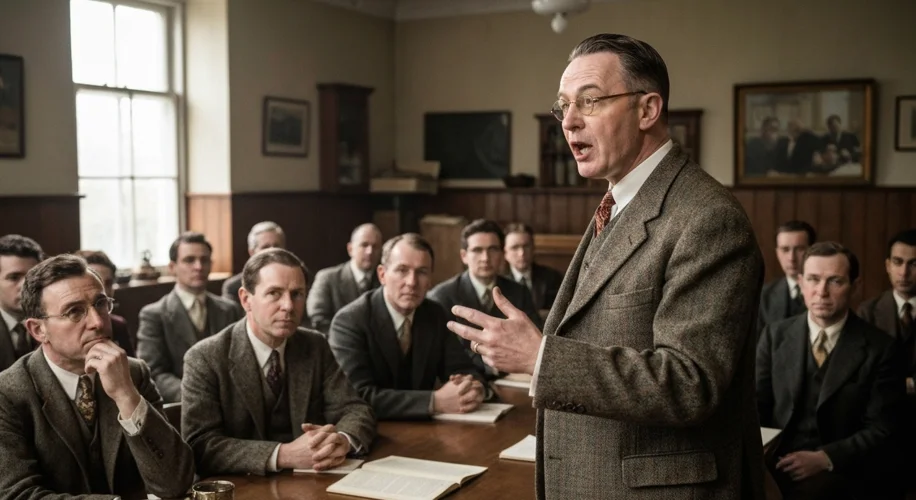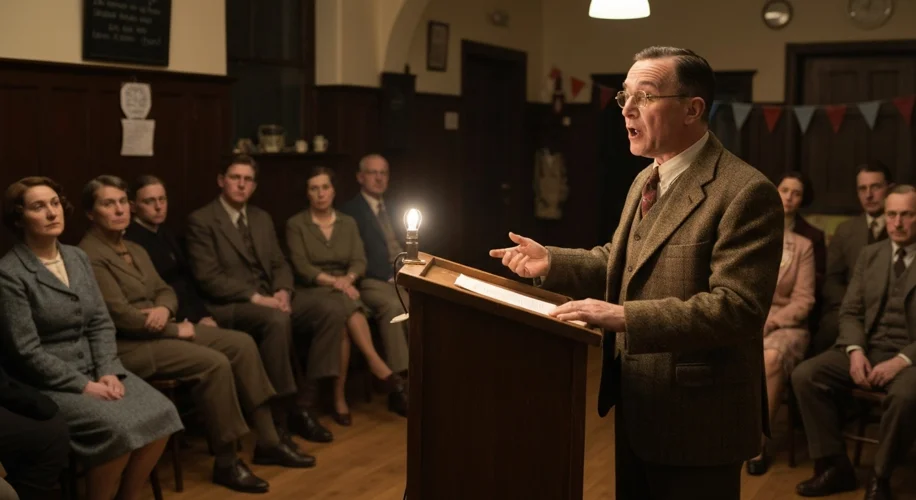In the bustling intellectual landscape of early 20th-century Britain, amidst the fervent debates shaping the future of socialism, there emerged a figure whose influence far outstripped the usual academic circles. George Douglas Howard Cole, or G.D.H. Cole as he was widely known, was more than just a writer and an educator; he was a master craftsman of his own public persona, a deliberate construction that became as influential as his socialist theories themselves.
Cole’s life, spanning from 1889 to 1959, coincided with a period of profound social and political upheaval. The Industrial Revolution had irrevocably altered the fabric of British society, creating vast inequalities and a burgeoning working class demanding a greater say in their own destinies. It was within this crucible of change that Cole found his intellectual and political home, becoming a leading proponent of Guild Socialism. This ideology, unlike the state-centric socialism gaining traction, envisioned a society where industries would be managed by autonomous guilds of workers, promoting democratic control and a more equitable distribution of power and profit.
But how did a relatively obscure academic, albeit a brilliant one, manage to capture the imagination and loyalty of so many within the burgeoning labor movement? The answer, in part, lies in Cole’s deliberate cultivation of his persona as a Workers’ Educational Association (WEA) tutor. The WEA, a vital institution dedicated to providing adult education to the working classes, provided Cole with a platform and a narrative. He wasn’t just an intellectual pontificating from an ivory tower; he was a man of the people, a tutor who met workers in their own communities, in drab town halls and union meeting rooms, sharing his ideas in accessible language, fostering critical thinking, and empowering them with knowledge.

This ‘politics of persona’ was not merely a marketing strategy; it was deeply intertwined with the core tenets of his philosophy. Guild Socialism itself was about democratic participation, self-governance, and the dignity of labor. By embodying the role of the WEA tutor, Cole became a living testament to these ideals. He demonstrated that knowledge and intellectual engagement were not the exclusive preserve of the elite but tools that could empower the working class to shape their own future. His lectures and classes were not just disseminations of information; they were exercises in democratic practice, fostering dialogue, encouraging questions, and building a sense of collective agency.
Cole’s influence can be seen in his prolific writing, which ranged from dense theoretical works on socialism to accessible pamphlets and articles. He was a tireless advocate, engaging in public debates, writing for socialist journals, and advising trade unions and political organizations. His partnership with his wife, Margaret Cole, another formidable intellectual and socialist, further amplified their reach and impact. Together, they were a formidable force, shaping the intellectual currents of the era.
Cole’s narrative as a tutor resonated because it offered an alternative to the often-impersonal and bureaucratic nature of political movements. In an age where industrialization threatened to dehumanize workers, Cole’s emphasis on personal growth, intellectual empowerment, and direct democratic participation offered a compelling vision of a more humane future. He understood that to advocate for a truly democratic society, one had to embody the principles of democracy in one’s own actions and public presentation.
While Guild Socialism as a distinct movement eventually faded, its core ideas – particularly the emphasis on worker control and democratic participation within workplaces – continued to influence socialist thought and practice. G.D.H. Cole’s legacy, therefore, is not just in the specific policies he advocated but in the enduring power of his constructed persona. He taught us that the way ideas are communicated, and the character of the communicator, can be as significant as the ideas themselves. He showed that a passionate, engaged, and accessible educator could be a revolutionary force, weaving a more democratic future one conversation at a time.

